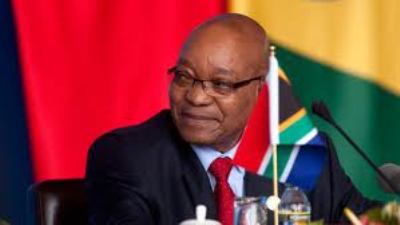President Jacob Zuma will lead the nation in marking Freedom Month in April, celebrating the dawn of freedom and democracy and the achievements of all South Africans in moving away from hatred, divisions and a painful history to build a common future together. Freedom Month 2013 is being celebrated under the theme “Mobilising society towards consolidating our Democracy and Freedom.” The celebrations must promote unity and a common agenda of building a united and prosperous South Africa. Activities will promote the National Development Plan as a long term vision which should serve as a basis for partnerships across society to attain the South Africa that is eloquently articulated in the constitution and historic national documents such as the Freedom Charter of 1955. The celebrations will recognise and celebrate the strides that have been made since 1994 as we head towards 20 years of freedom and democracy, acknowledging that South Africa is a far better society than it was before 1994. Celebrations will recall the country’s rich human rights tradition. Thus, Freedom Month will promote, affirm and celebrate the Constitution of the Republic, which is the supreme law of the land which ensures the protection and respect of the rights of all. The Constitution has its roots mainly in four documents or processes – the 1923 Bill of Rights, the African Claims of 1943, the Women’s Charter in 1954, the Freedom Charter in 1955 and the 1988 Constitutional Principles for a Democratic South Africa.
Freedom Month also celebrates and proclaims the preamble of the Constitution
In May 1923, at its conference in Bloemfontein, the ruling party the ANC, adopted a resolution on a bill of rights. It called for equal citizenship, access to resources including land as well as fair representation in government. This tradition was further consolidated through the African Claims document adopted in 1943, as a response to the 1941 Atlantic Charter of the Allied forces after the Second World War. The African Claims asserted among others the right of people to the government of their choice, freedom of the press and human rights, including socio-economic rights, women’s rights and cultural rights. The document laid the basis for socio-economic rights which are now included in the Bill of Rights. Another important document was the 1954 Women’s Charter, which was very specific on the protection of the rights of women and children, and helped to promote women’s rights as human rights. It laid the foundation for the country’s rich women’s rights struggle and tradition. More importantly, Freedom Month also celebrates and proclaims the preamble of the Constitution, especially the unifying assertion that South Africa belongs to all who live in it, black and white. At the same time, Freedom Month is also a period of reflection on what else needs to be done collectively towards the goal of building a prosperous society and an improved quality of life for all especially the poor and the working class. It reminds us of the need to work hard continuously to ensure that every household has water, electricity, sanitation, a good school, a good clinic, road, a police station and all other basic services. It will also reflect on work done towards economic emancipation and creating decent work.
The celebration will also reflect on what else needs to be done better to improve social cohesion and the building of a nation united in its diversity. Freedom Month celebrations will thus reflect on the outcome of the Summit on Social Cohesion hosted by government through the Department of Arts and Culture in July last year in Kliptown, Soweto. That summit, in its declaration acknowledged that social cohesion depends to a large measure on our ability, as society, to address the challenges of poverty and inequality amongst others. Some of the resolutions of the summit were the following: • To promote and preserve all indigenous cultures and knowledge. • To accelerate change in improving the quality of life of all people, with special attention to the needs of the youth, women and people with disability. • That the state must continue to build capacity to drive the socio economic agenda in the country, including absorbing young people and women into economic activity, employing professionals, investing in skills required by the economy, and investing in research and development to respond to the demands of the knowledge economy. • To continue to fight any forms of discrimination, which are threats to social cohesion and nation building. • To respect human dignity and equality; promote freedom, the rule of law and democracy; improve material well-being and economic justice; enhance sound family and community values; uphold honesty, integrity and loyalty; ensure harmony in culture, belief and conscience; show respect and concern for all people; strive for justice, fairness and peaceful co-existence; and protect the environment as contained in the Charter of Positive Values adopted by the Moral Regeneration Movement in 2008. The summit identified 29 eminent persons as social cohesion advocates. President Zuma urges all parties to use Freedom Month to unite South Africans in their commitment to building a nation that is caring, dignified and with a great sense of humility and mutual respect for one another.
– By


